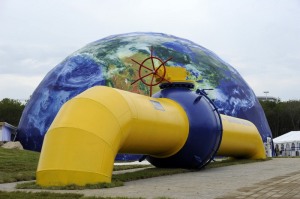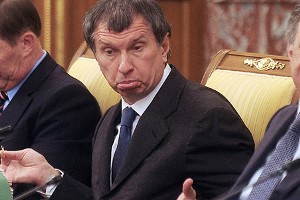 Russia’s attitude towards foreign investors is a mix of contradictions. The doors are open to those who know how to negotiate with Kremlin and obtain guarantees of protection. However, those same guarantees remain vulnerable to revisions at the discretion of the Russian government. Now, when Russia is under international sanctions, the situation is worse for foreign investors, and certainly is not getting better. A vivid example is ExxonMobil.
Russia’s attitude towards foreign investors is a mix of contradictions. The doors are open to those who know how to negotiate with Kremlin and obtain guarantees of protection. However, those same guarantees remain vulnerable to revisions at the discretion of the Russian government. Now, when Russia is under international sanctions, the situation is worse for foreign investors, and certainly is not getting better. A vivid example is ExxonMobil.
The largest US oil company has successfully operated in Russia for a long time. However, last March it entered into a conflict with the Russian government. In this conflict ExxonMobil has an influential ally, Igor Sechin, who is both a head of Rosneft, and a person very close to president Putin. ExxonMobil determined that a higher rate of income tax paid by the company during the last six years was unfair, and now requests the return of the overpayment. At issue is an oil joint venture, “Sakhalin-1” (participatory share of ExxonMobil – 30%, Rosneft – 20%, ONGC – 20% and Sodeco – 30%), which is being developed under the terms of the production sharing agreement (PSA). Income tax rate was 35% in Russia at the time of the execution of the PSA in the mid-1990s, but in 2009 the income tax rate was reduced to 20%. ExxonMobil believes that this decreased rate shall apply to the company’s taxes. However, the Russian government is convinced that the terms of the PSA can not be changed within the entire period of the PSA’s term. Leaders of the American company visited Moscow in early April to re-negotiate peacefully, but the negotiations failed. ExxonMobil then filed a suit with the Arbitration Institute in Stockholm.
Why ExxonMobil has decided to demand the return of the overpayment at this precise point in time is obvious: in the first quarter of 2015 all major oil companies expected to have a sharp drop in profits because of the low oil prices. Oil and gas sector analyst at Oppenheimer & Co. Fadel Gheit in an interview to “The Guardian” said that all large corporations will experience a significant decline in revenues. BP’s profit may fall to 70%, Shell – to 68%, and ExxonMobil – to 67%.
The response of the Russian government came right away. Russian mineral resources regulator (Rosnedra) conducted an unscheduled inspection at the “Sakhalin-1”. At a meeting with Arkady Dvorkovich, Russia’s vice prime minister, the question was raised to recall ExxonMobil’s licenses for the project “Sakhalin-1”. The goal is to put pressure on the US company because of the lawsuit filed by it.
However, ExxonMobil very quickly found a patron – Igor Sechin, who stated (without conducting any inspections) that the American company does not violate the terms of the PSA. Rosneft does not need any problems with ExxonMobil right now. In addition to the “Sakhalin-1” joint venture, there is also an ongoing joint

project of the construction in the Russian Far East of a liquefied natural gas (LNG) plant. Rosneft has ambitious plans in regard to this project: not long ago Sechin successfully managed to deprive Gazprom of its monopoly for the export of LNG.
Despite the sanctions, Rosneft tries to preserve the important Western partner at all costs, and ExxonMobil tries to receive a refund of taxes paid on profits. For the government the priority right now is the state’s budget, which due to the fall in the world oil prices “unexpectedly” became scarce. The result of all this is another conflict between the government and Sechin. Considering the factor of “manual management”, it is likely that this conflict will have to be resolved by Putin himself. He would have to choose between the corporate interests of his friend, the Russian budget revenues, and strategic interest to attract foreign investors. Unfortunately, Putin proved to be bad in resolving such dilemmas. So everyone might end up at a loss.





